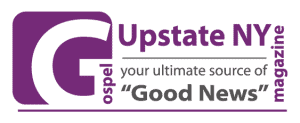Interviewer Cookie Waller: Good afternoon Mayor Warren
Mayor: Good afternoon
C.W.: Thank you for allowing me to come in and spend some time with you this afternoon. On the front cover of this Upstate NY Gospel Magazine, is your Lovely face, and we can see in your eyes, the excitement and the pride of your accomplishment. As an African American, and as Rochester’s First Female Mayor, Is there one word that can express what it feels like today for your face to be forever included as a face of black history?
Mayor: Honored

I would like to cover a couple of topics, and I would like to start with education. A lot of your focus has been on charter schools and parent choice. What are your plans to simultaneously fortify the Rochester City School District with public education?
Mayor: Charter schools are public schools. The number one reason why middle class families leave our city is because of the educational system. We need them to actually continue to invest in our city. But, your income or your zip code should not dictate what you future will be, or should be. And so, what my plans are in working with the district is to visit schools. Our young people need to see people that look like them; people that have been born and raised in their community, and be able to touch them, be able to feel them, be able to understand that the circumstances that they currently may be in, may not be as good as they would like them to be. But you do not have to finish where you started. You do not have to become a victim of your circumstance. Building those relationships with young people is the best thing that I think that I can do as a mayor.
C.W.: Yes, and the younger they are when they receive that understanding the better. I would like to ask about the universal Pre-K programs that are going to be offered. Are they going to be all day, or half day programs?
Mayor: The goal is to make them full day.
C.W.: That would be wonderful. Where are the new charter schools going to be located, in this city?
Mayor: Well, right now, they are all over. You have some that are opening up off of Pattison Avenue. Other locations are being surveyed. Charter schools will not be the end all, be all. But we need as much help as we can get. We need as many people as possible to be a part of the solution.
C.W.: Okay leaving education, I am going to jump to community development. Churches and charter schools both have reported that obtaining affordable building space and/or purchasing buildings within the inner city that may not require major repairs is still a very difficult process. What suggestions might you have for them?
Mayor: Many of the buildings that are old in our city are in need of major repair. I know that that is a barrier to some people building or even purchasing. Unfortunately, that just happens to be what the stock is. Those buildings that do not need that much assistance go fast. I think that one of the biggest opportunities for charter schools is to be able to work with the city school district to utilize some of the space that they are not using, or that they may not be using in the near future. We know that they have a declining enrolment, and because of that, they do not need as many buildings as they once did. You also have the fact that some of the buildings are not filled to capacity. So, there are ways and opportunities where a charter school could rent space. We are working with the city school district and the school board to develop and build those partnerships. I think that it is cheaper and easier for a charter school to be able to repurpose a space, than it is to actually have to convert a space that has never been a school into a school.
C.W.: Wonderful. Mayor Warren, it sounds like what you are saying is that you might be in favor of public and private partnerships with the schools and possibly finding a way to keep some of the current schools open past the hours that they are currently open for utilization in the community.
Mayor: Oh, absolutely. Public-private partnerships are the way. Consolidations, collaborations, those are the wave of the future. There is no free standing money that is going to be coming down the pipe like it used to. So, you have to be willing to work with other organizations or other entities to fulfill the obligation and to be of service to the community. It’s the same thing with government. We cannot do it alone. We have to work with private industry and private partners to develop those relationships with businesses, and universities to move our community forward as a whole.
C.W.: Alright. Let’s jump from community development to community involvement. How can community members become involved in some of the commissions and/or committees that you have already implemented?
Mayor: They can call our office and tell us that they want to be a part of it. We have a couple of initiatives that we will be working at and rolling out to the community to make sure that they get involved and ask them for their help and their expertise. And that’s part of what I said the other day. You have to put public back into public service; back into public education. The public to me is the community as a whole. Without developing and fostering and getting the community buying, I don’t care what we do from the top, it’s not going to work.
C.W.: I agree and it’s so good to hear you say that. I am now going to change to the topic of crime. What is your timeline on implementing neighborhood precincts?
Mayor: It’s going to take a while. Right now we are in a process of outlining how much it would cost and looking at the timeline for how we are going to strategically and methodically get ourselves back into this. It may take a year and a half before you actually see a neighborhood precinct open up. It is not something that we can do overnight because of course you have negotiations and other things that you have to work with. The goal is to make sure that we are going that way.
C.W.: With that said, and because the concept of having the neighborhood precinct is not new. What strategies are going to be different this time?
Mayor: Before we had seven sub-stations. In order to transfer an officer from this precinct to that precinct, you had to change the schedule, pay 
C.W.: Beautiful. The community will be truly looking forward to that. The next topic I would like to touch here is race. Do you believe a divide actually exists within the African-American community based on class here in Rochester?
Mayor: Yes.
C.W.: What do you think we can do to address that type of divide?
Mayor: Acknowledge it.
C.W.: Well, that’s the first step to address an issue.
Mayor: A Minister said that he went to Kodak and got Kodak to agree to open their doors to African-Americans and to hire them, but in the end, Kodak had the last laugh. What they said was, “It is okay. We are opening doors to hire, but we are going to find our own blacks to go after”. So they went, and they recruited blacks from all over the country. When they brought them here, they didn’t bring them to these city neighborhoods. They brought them to the outskirts. In doing that, the blacks that came here never really understood how they got here. They never made a connection with the community that fought so hard for the opportunity to be able to work for that company. You see the results of that in our community. Not by design. Not necessarily by choice. For many affluent African-Americans in this community, it has never been their problem. What happens in Joseph Avenue, or in Clinton Avenue, or in Jefferson Avenue, or in the crescent, has never touched them skin to skin, because they have never seen it as their problem.
C.W.: Is there something else that you would like to add to share with the community? Is there a question that you would like to answer that has not been asked?
Mayor: I would like to answer the question of, how did/does faith play a role? I was baptized when I was thirteen years old, and in my family, we are very strong in church. I did not always do what I was supposed to do. Of course, we all make decisions when we grow up. On election night, I told the people that worked at my campaign that, if you didn’t believe in God when we started, you better believe in Him now that we’ve finished.
My race was solely based on our faith, and because He brought me to this place. I say that because, when I told the Assembly man that I wanted to run, he told me that he didn’t think that it was a good idea. He asked me how much money I had. He asked me how many people I had. The answer was, None! But there was something in my spirit. There was something that kept telling me to do this now. This is not about me. This is about the community that I serve. This is about being of service to the people in this city.
There were times when I got tired and when the road got tough. We had no money, it just seems like something would always happen that would keep us going. I just happened to go to New Life Fellowship (Bishop McGill’s church), the Sunday before the primary elections. That is when that report came out and saying we were 36 points down. First, I went to the Church of Love and they prayed for me. Then, I went to New Life and I told them the story. I know what the polls say. But I have to trust in God. I have to trust that He didn’t bring me this far to leave me.
When I was conceived and my mom was pregnant with me, they never thought that she would carry me full term, or that she would die in childbirth just because of where I was positioned. But here I am. Then I went through a situation with my dad and my mom, and just high school in general. People thought that I would never graduate from high school.
I was a fighter, and He made a way. I was able to graduate from high school and go to Law School. While I was in college, my professor told me that I should go to Albany and do an internship, but I said no because I had to work. But he told me that I should really go to Albany to do this internship. So, in every step, no matter what I might have done, something kept pushing me back to a different path. God doesn’t make any mistakes.
While was in the last year of college, and first year of law school, I got diagnosed with a kidney disease, and they thought that I would not be able to graduate on time from law school. I had the chemotherapy treatments and other things. I was able to finish my studies, graduate on time, and pass the bar the first time. When I came home and I ran for city council the first time in 2005, I lost.
I had to lose. People said, “Why do you say that now”. I had to lose because I had to be humbled. Because, for me, despite what was going on, I had always come out on top. I had always overcome it. This was something that I couldn’t change. It was beyond my control, and I think that to get to the position that I am in now, I had to really recognize what true public service was about. That takes time and it takes wisdom.
My grandmother was alive at the time, and after I lost, she said “it’s not your time. When it’s your time, you will know”. Of course, that’s not something you want to hear at the time. But, two years later when the previous city council person stepped down, Davis said, “I think you should run again”. My husband and I had just gotten married in 2005. We had looked at a million and one houses. He walked out of the house that we had purchased and he said, “don’t mess this up. This is our house, don’t mess this up”. I said, alright.
My boss said to me that he thinks I should run. I did not agree. I did not even think that I lived in the district. He said that we should pick the map and see. So he pulls out the map, and my side of the street is in the district. Across the street from me was not in the district. The district went straight through the middle of our street. He said, “This is your time. This is your grandmother telling you that it’s this time”.
I was like, Wow! There is nothing more telling to you than that. So we ran, and that was a tough race. That primary for city council was a really tough race. It was brutal. I remember, the day before Election Day, on that Sunday, I went to David’s house and I was sitting on the chair with tears up to my chin. I was tired, and I didn’t care anymore. He said, “If you’ve done everything that you can do, take off these shoes and relax.” But at the end of the day, at 9 o’clock on primary night, you want to know that you did everything that you could do to win. You put your shoes back on and go.
I put my shoes back on and we went for a couple of more days. We won by eighty per cent of the vote. So, in anything that I do, I try to remember that God has me here for a reason. And that He didn’t bring me this far to leave me. As long as I stay focused, on the path that he wants me to walk, everything will be fine. When people from all the different sides come at you with things that do not have anything to do with your service, you ignore them. You keep doing what you need to do.
C.W.: Mayor Warren, you are a life model for people of color, especially for our young ladies, and you are a declaration to the statement “Black Girls Rock”. Upstate New York’s Gospel magazine is honored that you agreed to this featured article.
And So It Was Said…








